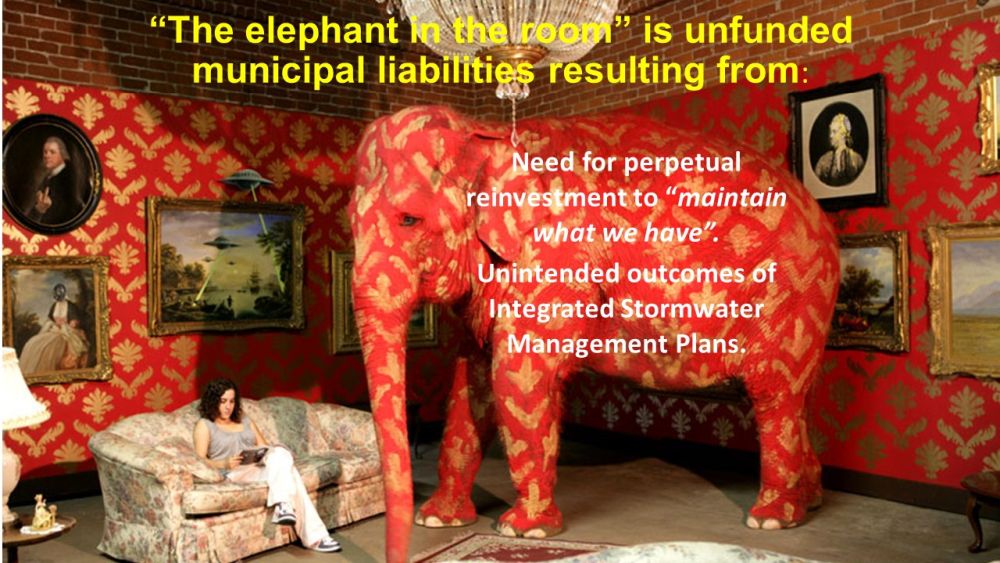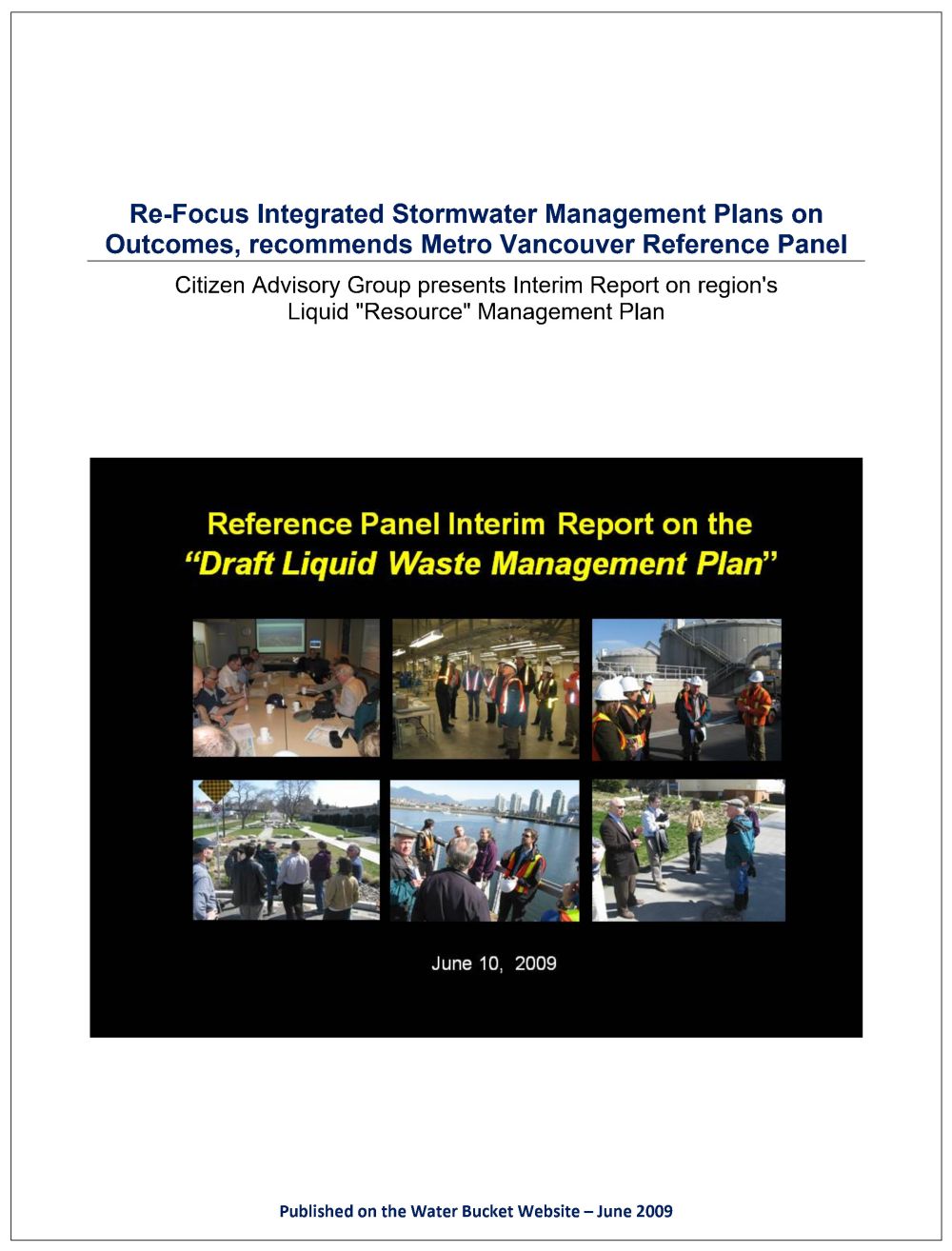DOWNLOAD: “Re-focus Integrated Stormwater Management Plans on on watershed targets and outcomes so that there are clear linkages with the land use planning and development approval process” – Metro Vancouver Reference Panel (2009)
Note to Reader:
Appointed by the Metro Vancouver Regional Board in April 2008 to provide independent advice and recommendations regarding the management of liquid wastes and rainwater, the Liquid Waste Management Reference Panel presented their Interim Report on A Liquid Resource Management Plan for Metro Vancouver on June 10, 2009.

Create a Legacy
 “The Reference Panel has developed an action-oriented policy framework that comprises 19 recommendations in five theme areas,” stated Kim Stephens, Reference Panel Chair. “For each of the five theme areas, we have identified a tag-line to describe the shift from the old to a new way of doing business…so that we will achieve the Sustainable Region Vision for managing sewage and rainwater as resources, not waste.”
“The Reference Panel has developed an action-oriented policy framework that comprises 19 recommendations in five theme areas,” stated Kim Stephens, Reference Panel Chair. “For each of the five theme areas, we have identified a tag-line to describe the shift from the old to a new way of doing business…so that we will achieve the Sustainable Region Vision for managing sewage and rainwater as resources, not waste.”
“The strategies and actions in the Plan will have an impact on Metro Vancouver’s sustainability for generations to come. Hence, it is important to link those actions to a picture of a desired outcome that will inspire people to strive for constant improvement – this is what we want our region to look like, and this is how we will get there.”

Built Environment – Move Beyond Pilot Projects
The Liquid Waste Management Plan approved in 2002 included a commitment by Metro Vancouver municipalities to integrate land use and drainage planning. This was the genesis for Integrated Stormwater Management Plans (ISMPs).
“When the Reference Panel reported back to the Waste Management Committee in July 2008, we identified the ISMP process as a sleeper issue because there are 130 watersheds in the region; and continuation of the old-business-as-usual would potentially result in an aggregate unfunded liability that could easily equal the $1.4 billion cost of sewage treatment. We used the elephant in the room analogy to make the point that the issue is known, but there seems to be a reluctance to tell it like it is,” stated Kim Stephens.
“Unfortunately, ISMPs completed to date have tended to be engineering-centric, and in general can be described as glorified master drainage plans. ISMPs that do not integrate land use and drainage planning are resulting in unaffordable infrastructure budget items that become liabilities, without providing offsetting stream health benefits.”
“For example, Surrey has completed three ISMPs. Surrey staff describes the three plans as being totally different in terms of approach and results. As the Reference Panel highlighted in the July 2008 meeting, the outcome-oriented Fergus Creek got it right and is a provincial pilot for integration. That’s the good news.
“Then there is the plan that proposed an unacceptable and unaffordable $26 million engineering solution at the top of a watershed. That’s the downside of an engineering-centric approach not connecting the dots.”
To Learn More:
To read the complete story, download a copy of Re-Focus Integrated Stormwater Management Plans on Outcomes, recommends Metro Vancouver Reference Panel


